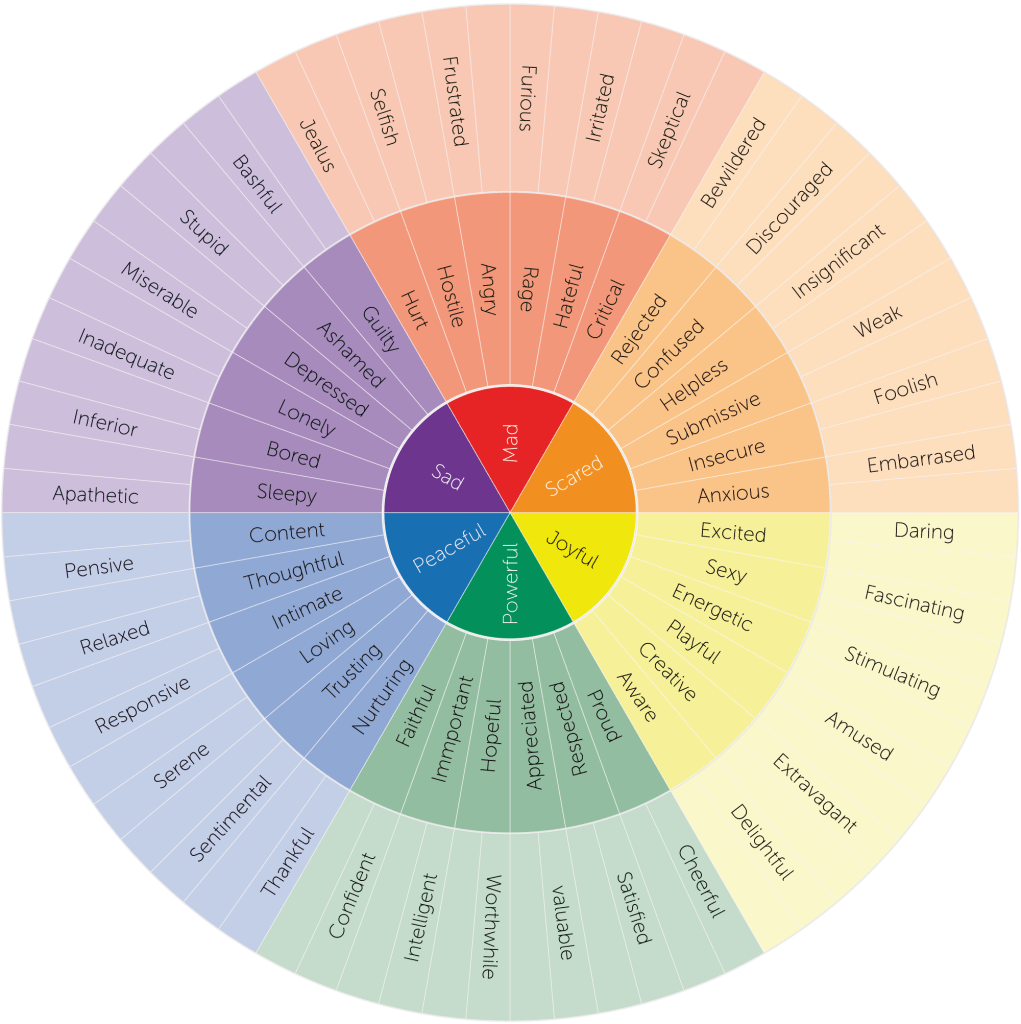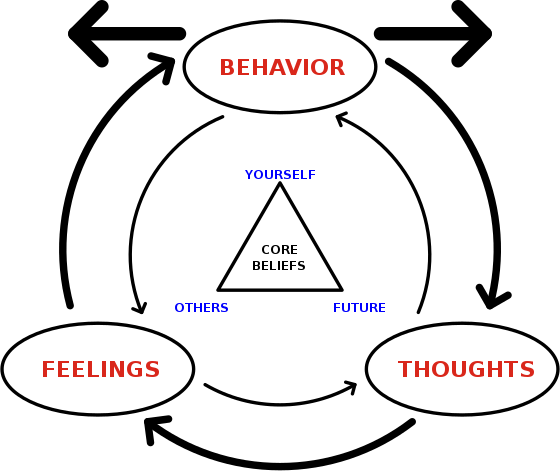Emotions, as defined by the Oxford English Dictionary, encompass a broad spectrum of complex psychological states involving distinct mental and physiological responses. According to the dictionary, emotions are “a strong feeling deriving from one’s circumstances, mood, or relationships with others; any of the particular feelings that characterize such a state of mind, such as joy, anger, love, hate, horror, etc.” In this article, I will provide information about understanding and regulating emotions.
Emotions fuel our everyday functioning, yet intriguingly, we are not always fully aware of them. Driven by a complex interplay of hormones and neural signals, our emotional experiences often operate beneath the surface of conscious awareness. Cultivating a deep sense of emotional self-awareness requires significant practice and mindfulness.
Thoughts are not emotions
One common challenge lies in distinguishing emotions from thoughts. While thoughts can be intricate and multifaceted, emotions are often succinctly labelled with single words. Joy, acceptance, disgust, surprise, sadness, fear, rage, and awe are among the myriad emotional states experienced by humans. These single-word labels encapsulate the depth and complexity of our emotional experiences.
Let us take the example of a panic attack. This complexity is evident in phenomena like the fight or flight response often present with anxiety, where intense fear triggers physiological changes, preparing the body for immediate action. The fight or flight response, an evolutionary mechanism deeply ingrained in our biology, floods the body with adrenaline and cortisol, increasing heart rate, sharpening focus, and redirecting blood flow to essential organs. That’s why understanding and regulating emotions is an important task for people with anxiety. While this response was vital for our ancestors facing physical threats, in the modern world, some individuals actively seek out fear-inducing situations. Hence, Engaging in activities like watching horror movies, participating in extreme sports, or immersing themselves in spooky attractions, they willingly trigger the fight or flight response for entertainment and thrill.

The Cognitive Triad
Emotions are intricately connected with our functioning, influencing our thoughts, behaviours, and responses to external cues. This interconnection creates a dynamic interplay between our emotional experiences and how we perceive and interact with the world. External cues, as well as internal thoughts and behaviours, can evoke emotions, leading to a complex web of interactions.
Sometimes, a mere external cue can evoke powerful emotions. For instance, receiving a compliment can evoke feelings of joy and validation, while criticism might trigger emotions of sadness or frustration. Similarly, emotions can influence our thoughts and behaviours. An optimistic student might eagerly go online to check exam results, driven by confidence and hope. In contrast, a student feeling vigilance and fear might delay checking the results, seeking comfort and distraction by going out with friends instead.

This intricate relationship between emotions, thoughts, behaviours, and external cues illustrates the multifaceted nature of human emotional experiences. Emotions are not isolated occurrences but are deeply intertwined with various aspects of our cognition and behaviour. Recognizing these intricate connections is fundamental in understanding the complexity of human emotions. It is vital in psychotherapy, where therapists work to unravel and address the intricate layers of emotional experiences within their clients.
Not feeling enough?
Furthermore, our bodies adapt to extreme situations that evoke strong cognitive and physiological emotions. This adaptive process is termed desensitization. For example, law enforcement professionals and civilians respond differently to traumatic scenes. While the situation still evokes strong emotions, being exposed to it repeatedly diminishes the intensity of the behavioural reaction or the intensity of the emotion itself. This desensitization phenomenon underscores the remarkable adaptability of the human psyche, allowing individuals to cope with challenging circumstances over time.

However, extreme emotions and situations can also limit a person’s functioning. Taking the same example we mentioned before, law enforcement officers exposed to a gunfight can become sensitive to external cues, thoughts, or emotions, re-experiencing traumatic moments over and over again. This can lead to disorders such as Post-traumatic Stress Disorder (PTSD), which can severely impact a person’s ability to work, socialize, and maintain relationships. Individuals suffering from PTSD may find it challenging to go out, leading to a loss of connections with family and friends.
In the modern world, psychotherapeutic approaches such as Cognitive Behavioral Therapy (CBT) provide practical tools for the treatment of such disorders. CBT helps individuals recognize and challenge negative thought patterns and behaviours associated with traumatic experiences. By addressing these patterns, individuals can regain control over their emotions, thoughts, and behaviours, gradually reclaiming their lives from the grips of debilitating emotional disorders.
Word Views
Strong emotions can also significantly influence how we perceive ourselves and our world. For instance, consider an anxious student who delays checking their test results due to fear. Over time, this anxiety can transform into annoyance and disappointment when the student perceives failure. The emotional weight of repeated failures might lead to feelings of sadness and self-loathing. As part of the adaptation process, the student might start to harbour thoughts such as, “I am useless at everything. I will never pass this test. The world is a difficult place, and I am not enough.” Eventually, these negative thought patterns can deepen, creating a pervasive sense of hopelessness.
In such cases, the student might cease trying new tasks or challenges, regardless of their difficulty level. This cycle of negative emotions and self-perception can escalate, potentially resulting in clinical depression. Clinical depression not only affects one’s emotional state but also distorts one’s worldview, making it challenging to engage with the world positively.

This example highlights the profound impact that emotions can have on our self-esteem and perception of reality. It underscores the importance of understanding and regulating emotions, not only for our mental health but also for our overall well-being. Recognizing the intricate connections between emotions, thoughts, behaviours, and self-perception is fundamental in psychotherapy. Therapists employ various techniques to help individuals challenge negative thought patterns and develop healthier emotional responses, fostering resilience and promoting mental and emotional wellness. Through these therapeutic interventions, individuals can regain control over their lives, fostering a more optimistic outlook on themselves and the world.
Regulating Emotions: Effective Strategies for Well-being
Understanding and regulating emotions are essential components of mental and emotional well-being. Emotions, often intricate and powerful, can significantly impact our thoughts, behaviours, and overall quality of life. Fortunately, individuals can employ various strategies and techniques to regulate their emotions effectively. These approaches, rooted in psychological principles and mindfulness practices, can empower individuals to navigate their emotional landscapes with resilience and self-awareness.
Strategies

1. Interpersonal Effectiveness: Interpersonal skills involve effective communication, assertiveness, and conflict resolution. Developing these skills enables individuals to express their emotions and needs clearly, fostering healthy relationships and reducing emotional turmoil.
2. Distress Tolerance: Distress tolerance techniques help individuals tolerate and endure intense emotions without resorting to harmful behaviours. These strategies, often used in Dialectical Behavior Therapy (DBT), include self-soothing activities, distraction techniques, and creating a calming environment.
3. Radical Acceptance: Radical acceptance involves fully accepting the reality of a situation without judgment or resistance. It allows individuals to acknowledge and make peace with their emotions, promoting a sense of inner calm and reducing inner turmoil.
4. Mindfulness: Mindfulness practices encourage being fully present in the moment without judgment. Mindfulness meditation, breathing exercises, and body scans can help individuals observe their emotions without becoming overwhelmed. Cultivating mindfulness enhances emotional regulation and promotes a sense of overall well-being.
5. Journaling: Journaling provides a safe space to express and explore emotions. Writing about feelings, thoughts, and experiences can offer clarity and perspective. Reflective journaling can aid in understanding triggers, patterns, and emotional responses, leading to greater self-awareness.
6. Psychotherapy: Psychotherapy, or talk therapy, provides a supportive and confidential environment for individuals to explore and address their emotions. Therapists use various therapeutic techniques, including Cognitive Behavioral Therapy (CBT), Dialectical Behavior Therapy (DBT), and psychodynamic approaches.
7. Physical Exercise: Regular physical activity, such as jogging, yoga, or dancing, releases endorphins, often referred to as “feel-good hormones.” Exercise boosts mood and provides a healthy outlet for releasing pent-up emotions, reducing stress, and promoting emotional well-being.
8. Creative Outlets: Engaging in creative pursuits like art, music, writing, or dancing allows individuals to express their emotions nonverbally. Creative outlets provide a channel for emotional release and self-expression, fostering a sense of accomplishment and emotional balance.

Conclusion
By incorporating these strategies into their lives, understanding and regulating emotions can help us immensely with emotional resilience, coping with challenging situations, and fostering a greater sense of well-being. It’s important to note that finding the most effective strategies often involves exploration and experimentation. Each person’s emotional landscape is unique, and the journey toward emotional regulation is deeply personal. With patience, self-compassion, and the support of mental health professionals when needed, individuals can cultivate a healthier relationship with their emotions, leading to a more fulfilling and balanced life.
Ready to begin? Start your online therapy journey today. Book your first session now.




